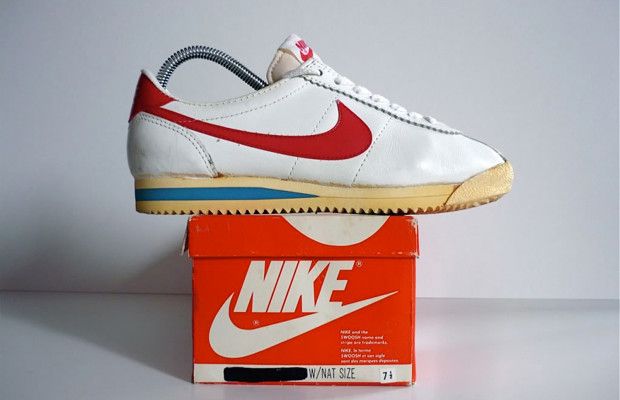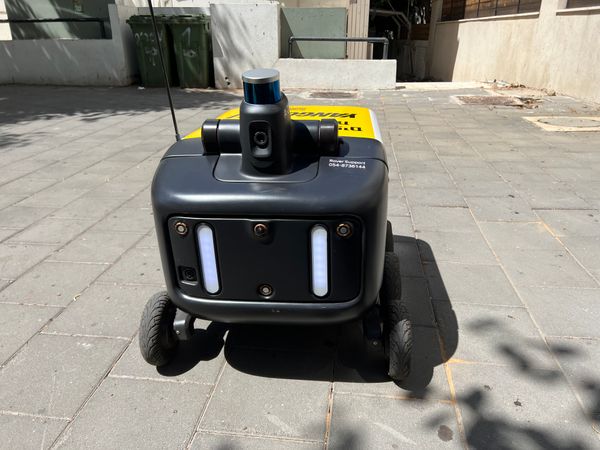10 Incredible Insights from Nike's Founder
I recently read Phil Knight's magnificent autobiography: Shoe Dog.
Who is Phil Knight?
Well, he's the founder of Nike.
And his life is just incredible.
The quote I shared above was quote #1, and in this article, I'm going to share 9 other quotes to tell you the story of Phil Knight, who was a broke 24 year old accountant in Oregon, and created the #1 billion dollar sport company on Earth...
These quotes are timeless, and should be read again and again...
Let's begin with the set:
1960s — Phil Knight just graduated, and has no clue what to do with his life... just one crazy idea.
We're in 1960s, in the middle of the Vietnam War. Phil Knight was freshly graduated from Stanford in Business Administration.
But Phil has no career plan, he had just one concern:
Phil Knight was a runner.
He ran for kilometers every day.
One day, he noticed that running shoes in the US were far inferior than running shoe everywhere else.
And so began his crazy idea to become a shoe importer...
So what did Phil do?
Try his idea?
Not really.
His entourage called this idea "crazy", and so he actually decided to go to Hawaii with a friend, and try to sell encyclopedias.
And so began the tour of the world that would change his life (and ours) forever.
1962: Phil Knight's leaves Oregon and begins a tour around the world
To fully appreciate this, you need to put things in context.
It's 1962, over half of the americans have never left america.
The cost of a single plane ticket is incredibly expensive.
And yet, Phil decides to take a friend, and leave for a world tour.
How many of us would do that today?
This moment of boldness is incredible when you think about it twice.
And it had every reason to work.
Phil could have become a great salesman in Hawaii.
But he didn't.
He was terrible at selling.
And nobody ever bought a single book from him.
"No matter how deftly or forcefully I managed to deliver the key phrases drilled into us during our brief training session (“Boys, tell the folks you ain’t selling encyclopedias—you’re selling a Vast Compendium of Human Knowledge . . . the Answers to Life’s Questions!”), I always got the same response. Beat it, kid."
So he left Hawaii, and began a tour around the world. —He visited India, Greece (where he visited the Temple of Nike — goddess of victory), Roma, Paris, Thailand, Vietnam, and eventually Kobe, in Japan.

When reading the book, it's incredible to realize how much a travel around the world can change you. When I left for 6 months to Montreal, Canada — I came back totally changed. Changed in a good way, your mind is more open, you are more self-aware, and you are totally free to start over and be whoever you want. Nobody knows you.
I'd recommend travelling to anybody who's wondering what to do in life.
But let's go back to Phil, he ended up in Japan, a country devastated by World War II, and where everybody hated americans.
But Phil knew that Japan could be his calling:
Thus, I argued in my paper that Japanese running shoes might do the same thing. The idea interested me, then inspired me, then captivated me. It seemed so obvious, so simple, so potentially huge."
And so began Nike's entrepreneurial journey.
1963: Phil Knight creates Blue Ribbon
Exploring Japan, Phil met a factory and asked them to import their running shoe to the US.
It wasn't just "hey guys can I import your shoes?" — He was an avid reader, and prepared his trip for weeks. He learned everything he could about the japan culture, about buddhism, about war, and even a book named "How to Do Business with the Japanese."
Preparation worked — and he became the first importer of the "Tigers" in 1961.
He created a company called "Blue Ribbon Sports".
And so it began.

And you know what happened? It worked!
This time, it worked really well.
They had a super slow start, but they were selling!
So why was selling shoes so different?
Because, I realized, it wasn’t selling. I believed in running. I believed that if people got out and ran a few miles every day, the world would be a better place, and I believed these shoes were better to run in. "
Phil was convinced in his product.
He wasn't selling one more encyclopedia.
If you don't believe in what you're selling (even your own skills), it will show at the interview.
So let's move on to the next chapter:
1964 — 1970: Phil's principles to grow Blue Ribbons Sports
To go from a tiny shop in the West Coast to a billion dollar company, Blue Ribbon used several principles. I remember very well 3 of them, who are to be read again and again:
Phil had many employees and was doing very little supervision.
Some employees went crazy for getting zero encouragement and zero response to their mails.
But it was all framing, with no micromanagement.
(I tried, it's much easier said than done)
Some of the ideas that came from this were about sponsorship with athletes (still a thing today).
Nike's co-founder had contacts with runners, such as Steve Prefontaine, who was considered one of the best runners of the world before his tragic death.

From 1960 to 1970, Blue Ribbon struggled to get loans from companies, because they weren't profitable.
Millions of dollars in revenues selling shoes for a few dollars, but they were spending more than they were making, and banks hated it.
They spent over 10 years one disaster away from sinking the company because of lack of funds.
But Phil was obsessed about growth. "You grow or you die."
After Blue Ribbon was the seller of the Tigers in the US, another player came.
A much bigger one.
And they decided to split the country in 2: Nike was selling on the West Coast, and the big company was selling on the East Coast.
What happened? Blue Ribbon broke the rules and went to sell to the East too. And ended up making much more profits, and becoming the only legal importer in the US.
1971: Blue Ribbons becomes Nike.
So why did "Blue Ribbon" want to become "Nike"?
Well, it didn't.
In fact, they were forced to transform into Nike.
How?
At some point, the Japanese factory decided to look for other resellers.
Phil was terrified, but it forced him to do something crazy...
He created his own shoe.
This is how Blue Ribbon died, and Nike was born.
Many competitors came, including from Japan.
But nobody could compete with Nike.
I'd now like to show you my favourite quote of the entire 600 page book. It happened when Phil was at a "death ground" moment, back against the wall, and had to come back with a Federer move, or let Blue Ribbon die...
👉🏼 This is a quote that inspired me a lot with Think Autonomous.
And I try very hard to respect it.
If somebody wanted to beat me at teaching self-driving cars, he'd need to bleed for it.
I'm not the best (yet), but I know what I'm doing makes extremely high entry barriers to anyone who dares to step into my land.
Nike was a bigger company than Blue Ribbon ever could.
They had their own show factory, they were even selling t-shirts at some point.
It became bigger than selling a shoe.
It became about becoming better than yourself.

Eventually, Nike had to keep growing.
And Nike chose to IPO.
They didn't want it, it could kill their spirit.
But they had to.
"You grow or you die."
And so they grew.
2007: Phil Knight tips to young entrepreneurs
In his final chapter, Phil Knight gives his thoughts about the world, about factory workers, about branding, and about how he would do it today.
Here is a passage from his quote:
Even if you don’t know what that means, seek it. If you’re following your calling, the fatigue will be easier to bear, the disappointments will be fuel, the highs will be like nothing you’ve ever felt. (...)
I’d like to remind them that America isn’t the entrepreneurial Shangri-La people think. Free enterprise always irritates the kinds of trolls who live to block, to thwart, to say no, sorry, no. And it’s always been this way.
Entrepreneurs have always been outgunned, outnumbered. They’ve always fought uphill, and the hill has never been steeper. America is becoming less entrepreneurial, not more. A Harvard Business School study recently ranked all the countries of the world in terms of their entrepreneurial spirit. America ranked behind Peru. And those who urge entrepreneurs to never give up? Charlatans.
Sometimes you have to give up. Sometimes knowing when to give up, when to try something else, is genius. Giving up doesn’t mean stopping. Don’t ever stop."
And that finishes this article.
Want to go further? I highly recommend reading the book, I've read over 100 books in the past 2 years, and "Shoe Dog" is easily in my Top 10.
Bonus Quote
Nike's crew had nothing "athlete". Besides Phil who was a runner (but a terrible salesman), the team wasn't adequate to do that kind of business — but they still did.
If you're wondering whether you fit or not, if you feel like you're not the right profile for some kind of job, try anyway and let the events decide.
Bonus Video
Here is an interview with Phil Knight, when promoting the book:





